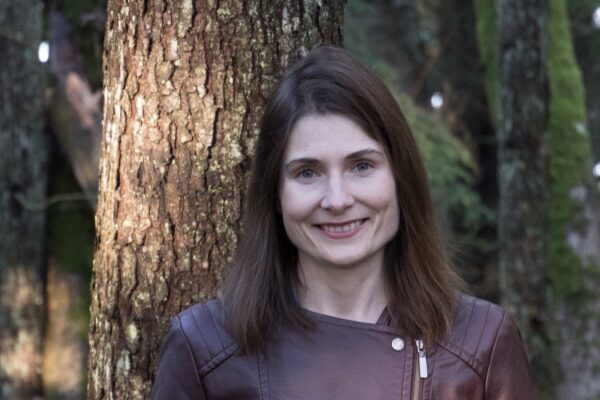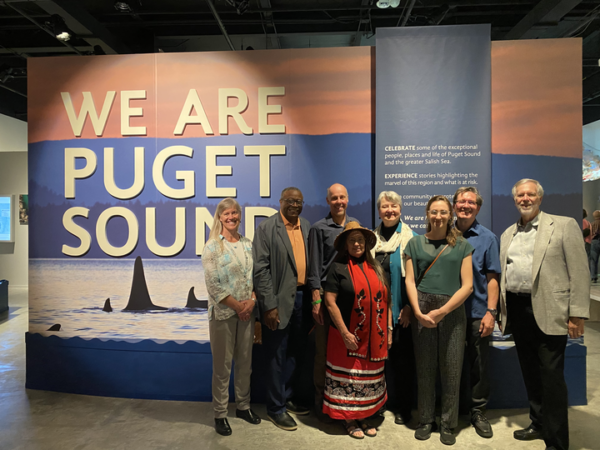Seattle Aquarium ∙ Washington Environmental Council ∙ The Whale Museum ∙ Citizens for a Healthy Bay ∙ Friends of the San Juans ∙ Washington Conservation Voters ∙ RE Sources for Sustainable Communities ∙ The Humane Society of the United States ∙ NRDC ∙ Defenders of Wildlife ∙ League of Women Voters of Washington ∙ Futurewise ∙ Point Defiance Zoo & Aquarium/Northwest Trek Wildlife Park ∙ Surfrider Foundation ∙ The Nature Conservancy ∙ Sound Action
February 19, 2019
Dear Washington State Senators and Representatives,
The southern resident orca population is on the brink of extinction and calls for an all-hands-on-deck commitment to action. The undersigned organizations urge you to support HB 1580/SB 5577, retaining all the elements that together address both vessel noise as well as disturbance.
Reducing vessel noise and disturbance is something we can do right now that will have an immediate benefit, while we simultaneously work to increase the availability of Chinook salmon and reduce toxic pollution over the coming years. The actions in the bill are backed up by the latest science collected and vetted by the task force’s vessels working group, and they stem directly from Orca Task Force recommendations.
The science is clear that underwater boat noise makes it hard for orcas to echolocate to find the Chinook salmon that are the mainstay of their diet—and that are currently scarce. Underwater boat noise also makes it harder for orcas to communicate with each other; this is thought to affect their ability to share information about where they are finding fish. Vessel noise can also cause stress in whales and dolphins. Slowing boats will help reduce noise, and we therefore support the go-slow zone of 7 knots within a half nautical mile of the southern resident orcas.
The presence of boats—even quiet ones—also changes orca behavior in ways that can make them spend more energy, such as making them hurry to avoid boats instead of pausing to eat. It is not sufficient only to reduce noise; the number and proximity of all vessels to the orcas must also be addressed. A wider buffer is key to giving the orcas more space for vital activities like foraging. The limited-entry whale-watching permit system is also essential because it provides a mechanism by which the Washington Department of Fish and Wildlife could cap the number of commercial boats around the orcas at any given time and make other adjustments over time based upon the latest science. We believe that system will be strengthened, and avoid unintended consequences, if the permits are non-transferable.
We also urge the legislature to support scientific monitoring to allow for adaptive management of all of these polices going forward so we can ensure that we are maximizing the orcas’ chance of recovery.
Given the severity and urgency of the situation, we need to take a precautionary approach. We strongly urge you to support HB 1580/SB 5577, advancing all the measures outlined in this bill, particularly the wider buffer, limited-entry permit system, and go-slow zone. Addressing both noise and vessel disturbance will be critical to ensuring that the endangered southern residents have the relief they need to recover.
Sincerely,
Robert W. Davidson
President & CEO
Seattle Aquarium
Ann Murphy
President
League of Women Voters of Washington
Chris Wierzbicki
Executive Director
Futurewise
Melissa Malott
Executive Director
Citizens for a Healthy Bay
Stephanie Buffum
Executive Director
Friends of the San Juans
Shannon Murphy
President
Washington Conservation Voters
Alan Varsik
Director
Point Defiance Zoo & Aquarium
Northwest Trek Wildlife Park
Dan Paul
Washington State Director
The Humane Society of the United States
Becky Kelley
President
Washington Environmental Council
Jenny Atkinson, Executive Director
Taylor Shedd, Soundwatch Program Coordinator
The Whale Museum
Michael Jasny
Director, Marine Mammal Protection
NRDC
Robb Krehbiel
Northwest Representative
Defenders of Wildlife
Eleanor Hines
North Sound Baykeeper
RE Sources for Sustainable Communities
Gus Gates
Washington Policy Manager
Surfrider Foundation
Jesse Israel
Director, Puget Sound Conservation
The Nature Conservancy
Amy Carey
Executive Director
Sound Action


